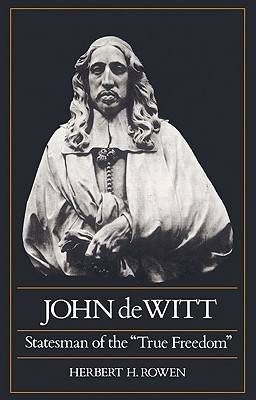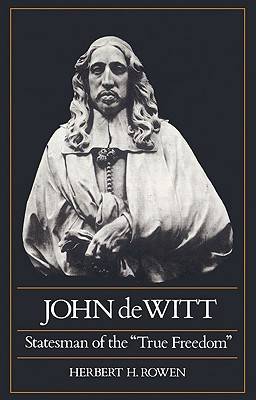
Je cadeautjes zeker op tijd in huis hebben voor de feestdagen? Kom langs in onze winkels en vind het perfecte geschenk!
- Afhalen na 1 uur in een winkel met voorraad
- Gratis thuislevering in België vanaf € 30
- Ruim aanbod met 7 miljoen producten
Je cadeautjes zeker op tijd in huis hebben voor de feestdagen? Kom langs in onze winkels en vind het perfecte geschenk!
- Afhalen na 1 uur in een winkel met voorraad
- Gratis thuislevering in België vanaf € 30
- Ruim aanbod met 7 miljoen producten
Zoeken
Omschrijving
If the combination of superb political skills and a powerful intelligence were enough to make a 'philosopher-king' such as Plato dreamed of, the Dutch 'Grand Pensionary' John de Witt (1625-72) would fit the prescription as well as any statesman in history. Manoeuvring among the powers of Europe in the period of France's growing ascendancy, and facing the bitter commercial and political rivalry of the English, he managed to preserve the eminent position the United Provinces had reached when Spain recognized their independence at Munster in 1648. Not until the kings of France and England combined against the Republic in 1672 did De Witt's political system, called the 'True Freedom' and consisting of the maximum autonomy of the provinces and the exclusion of Prince William III of Orange from high office, collapse during the French invasion, an event accompanied by the horrific assassination of De Witt and his brother Cornelius.
Specificaties
Betrokkenen
- Auteur(s):
- Uitgeverij:
Inhoud
- Aantal bladzijden:
- 248
- Taal:
- Engels
Eigenschappen
- Productcode (EAN):
- 9780521527088
- Verschijningsdatum:
- 13/11/2003
- Uitvoering:
- Paperback
- Formaat:
- Trade paperback (VS)
- Afmetingen:
- 141 mm x 215 mm
- Gewicht:
- 322 g

Alleen bij Standaard Boekhandel
+ 152 punten op je klantenkaart van Standaard Boekhandel
Beoordelingen
We publiceren alleen reviews die voldoen aan de voorwaarden voor reviews. Bekijk onze voorwaarden voor reviews.









